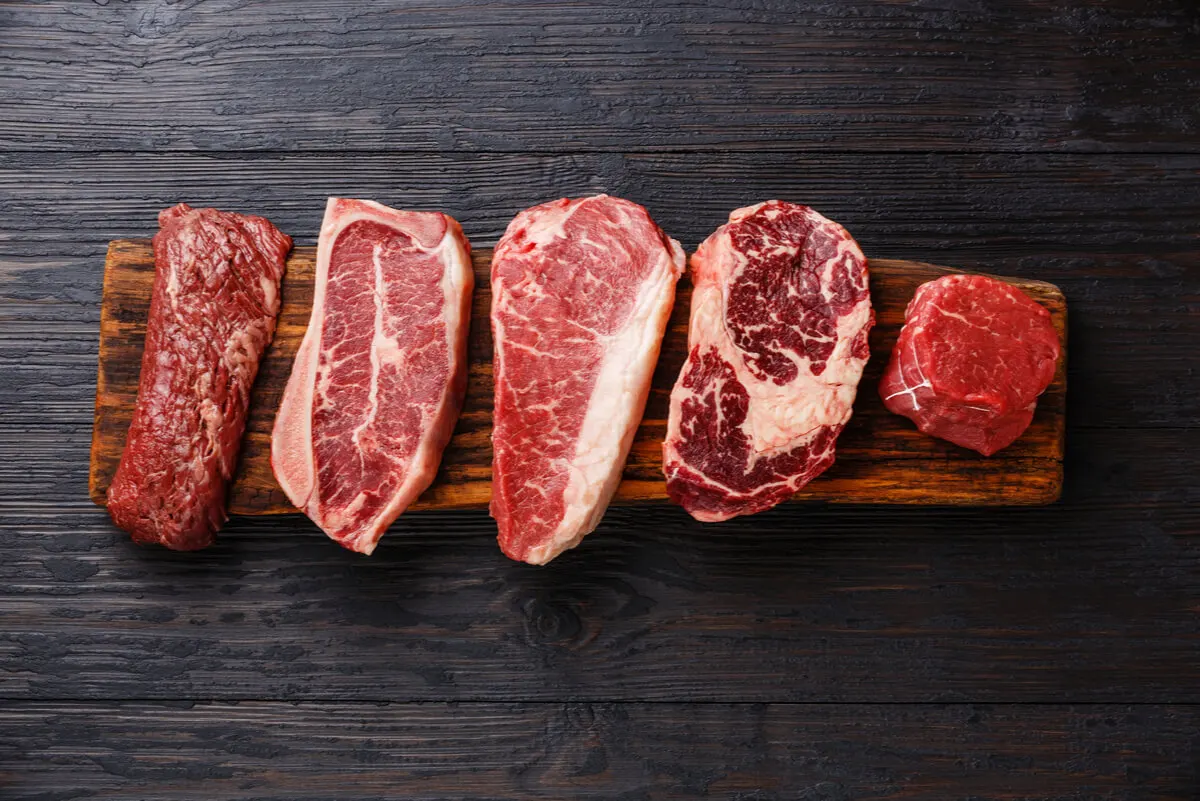Two Foods to Cut Out of Your Diet to Reduce Swelling and Lose Weight


Reviewed and approved by the nurse Leidy Mora Molina
There are a number of foods and two in particular that should be reduced in your diet to reduce swelling and lose weight. The reason behind the decision to leave them aside lies in the presence of advanced glycation end products, better known as AGEs or advanced glycation products.
AGEs are formed in the blood after consuming some foods, but they can also be present in products that are prepared in some particular way for consumption. These inflammatory compounds are found in common foods in the Western diet, which is rife with ultra-processed foods and carbohydrates.
These substances are not only linked to inflammation and weight gain, but also to cardiovascular disease and food allergies.
In this article, we’re going to reveal what are these two foods you should reduce and other scientific details that have been discovered from the study of these compounds.
Lower inflammation and lose weight by reducing these two foods
By reducing the consumption of fatty meats and dairy, you will notice a decrease in inflammation in your body. As an associated effect, you will likely also lose weight.
This is confirmed by a study published in Obesity, Science & Practice, which states that following a diet in which the foods consumed are primarily of plant origin, reduces AGEs by 79%. On the other hand, the research emphasizes that regular meals with fresh meats and dairy decrease the presence of these compounds as well, but only by 15%.
Simply switching from fatty meats and dairy to a lean plant-based diet produced a significant decrease in advanced glycation products. -Kahleova et al. (2022)
The authors also explain that this occurs because AGEs are found in a higher concentration in animal-based foods. Opting for plant-based foods would contribute to better health.
This is especially because AGEs affect markers of metabolic health. Therefore, reducing the two mentioned foods, among other thermally aggressive preparations, improves insulin sensitivity (a protective factor against diabetes).

We think you may also enjoy reading this article: How to Fight Inflammation and Intestinal Gas with Aloe Vera and Papaya
But why do AGEs inflame the body?
As detailed by the scientists involved in this finding, AGEs inflame the internal milieu and contribute to weight gain when protein or fat combine with glucose in the bloodstream. It’s at this point that, in addition to causing inflammation, they generate oxidative stress.
This last factor is a trigger for the onset of chronic diseases, such as type 2 diabetes and peripheral arterial disease. The paper emphasizes that the consumption of the two aforementioned foods in a person with metabolic syndrome is even more dangerous because the production of AGEs becomes more active.
This important conclusion was made possible through the analysis of 244 participants who were divided into two groups. The first group consumed a plant-based, low-fat diet, while the second group had no change in their diet.
The trial lasted 16 weeks, during which time the patients were analyzed. They underwent control measures on their body composition, fat and muscle proportions, and blood tests to identify the level of insulin resistance.
Like this article? You may also like to read: Remedies to Improve Circulation and Relieve Inflammation
White meat is one of the two foods that should be reduced
To the surprise of many, among the foods that should be reduced (meats and dairy), is white animal protein. Historically, this has stood out as one of the healthiest.
However, in this research, it was determined that the reduction of white meat was very important since it accounted for 59% of the AGEs from meat. In comparison, other sources of animal protein, such as processed meat, contributed only 27%.

Other negative effects of AGEs on health
Other research that has focused on the adverse health effects of AGEs indicates that an increase in these components in people with diabetes and chronic kidney disease has greater effects on their health.
On the other hand, the association between AGEs and conditions such as memory impairment, polycystic ovary syndrome, wound healing, periodontitis, erectile dysfunction, obstructive sleep apnea, Alzheimer’s, and schizophrenia has also been addressed.
The role of advanced glycation products in cancer is not minor. According to a 2020 study, these compounds interact with receptors in the human body called RAGE, which is capable of activating other substances linked to the malignant transformation of cells.
Thus, more and more research is trying to reveal why the cases of diabetes and cancer are on the rise in the world. The link between the two diseases may lie in nutrition. AGEs could be partly to blame for both pathologies.
Overall, diet and lifestyle modification to reduce advanced glycation products is critical. Apart from focusing on weight loss, the recommendation is to prevent this type of disease altogether.
All in all, according to this study, patients who reduced these two foods – meat and high-fat dairy – managed to lose a little over a pound.
All cited sources were thoroughly reviewed by our team to ensure their quality, reliability, currency, and validity. The bibliography of this article was considered reliable and of academic or scientific accuracy.
- Dariya, B., & Nagaraju, G. P. (2020). Advanced glycation end products in diabetes, cancer and phytochemical therapy. Drug Discovery Today, 25(9), 1614-1623.
- Hana Kahleova,Tatiana Znayenko-Miller,Jaime Uribarri,Richard Holubkov,Neal D. Barnard. Dietary advanced glycation products and their associations with insulin sensitivity and body weight: A 16-week randomized clinical trial. Obesity Science and Practice. 2022. Doi: https://doi.org/10.1002/osp4.646
- Prasad C, Davis KE, Imrhan V, Juma S, Vijayagopal P. Advanced Glycation End Products and Risks for Chronic Diseases: Intervening Through Lifestyle Modification. Am J Lifestyle Med. 2017 May 15;13(4):384-404. doi: 10.1177/1559827617708991. PMID: 31285723; PMCID: PMC6600625.
- Wang M, Yang Y, Liao Z. Diabetes and cancer: Epidemiological and biological links. World J Diabetes. 2020 Jun 15;11(6):227-238. doi: 10.4239/wjd.v11.i6.227. PMID: 32547697; PMCID: PMC7284016.
This text is provided for informational purposes only and does not replace consultation with a professional. If in doubt, consult your specialist.








